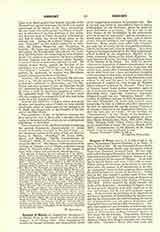

Gregory of Rimini, an Augustinian theologian; b. at Rimini, Italy, in the second half of the thirteenth century; d. at Vienna, 1358. After completing his studies, he became professor and subsequently rector of the Augustinian seminary in his native city. But it was not long before he was called to Paris to take a professorship at the Sorbonne, where he achieved great distinction as a teacher. He was one of the chief leaders of the Nominalists in the controversy over the nature of “universals”, and his disciples conferred most respectful titles on him, such as Doctor acutus, Lucerna splendens, and especially Doctor authenticus. Many people even called him “beatus” not only out of esteem for his remarkable erudition, but for his heroic and virtuous qualities. As a theologian he belonged naturally to the older Augustinian school founded by the Augustinian Aegidius of Colonna, commonly known as the Schola Aegidiana. In some respects, however, his views diverged from those of the founder of the school. For, while the latter’s views on the disposition of sinners towards grace by no means coincide with the opinions of St. Augustine, and are far more nearly akin to Semipelagianism, Gregory on the other hand was a most pertinacious champion of the teachings of this saint, and had no hesitation in opposing the general teaching of the Scholastics with respect to the need for grace in fallen man and the punishment of original sin, even though the Aegidian school followed in general St. Thomas. These views of Gregory found many zealous supporters again in the seventeenth century, Cardinal Noris in particular defending them vigorously. Gregory’s opponents delighted to call him the “Infantium Tortor” (Tor-mentor of children), because he held, in opposition to the other Scholastics, the severe and extreme views concerning the fate of children who died unbaptized. In 1357 he succeeded the equally famous Thomas of Strasburg as General of the Augustinian Hermits, but died the next year at Vienna. Of his writings, the “Commentaries” on the “Books of the Sentences” have appeared in print (Lectura in primum et secundum librum Sententiarum, Paris, 1482, 1487; Milan, 1494; Valentia, 1500; Venice, 1518); also a treatise on the prohibition of usury (De usuris, Rimini, 1522, 1622). Commentaries on the Epistles of St. James and St. Paul are also attributed to him.
PATRICIUS SCHLAGER

